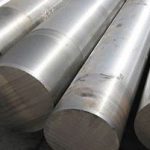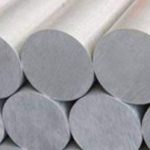Welcome to My Blog!
Before we dive into the content, I’d love for you to join me on my social media platforms where I share more insights, engage with the community, and post updates. Here’s how you can connect with me:
Facebook:https://www.facebook.com/profile.php?id=100087990137347
LinkedIn:https://www.linkedin.com/company/89825762/admin/dashboard/
YouTube:www.youtube.com/@carbonsteelsupply-kj9lw
TikTok:www.tiktok.com/@carbonsteelsupply
Now, let’s get started on our journey together. I hope you find the content here insightful, engaging, and valuable.
Introduction

D2 tool steel is renowned for its exceptional hardness, making it a popular choice in various industrial applications. Understanding D2 tool steel hardness is essential for manufacturers, machinists, and engineers who require high-performance materials. This article will delve into the benefits and applications of D2 tool steel hardness, providing insights into its unique properties.
Understanding D2 Tool Steel
D2 tool steel is a high-carbon, high-chromium steel known for its hardness and wear resistance. Typically, D2 tool steel achieves a hardness rating of 58-62 HRC after heat treatment, making it ideal for tooling applications. The combination of carbon and chromium gives D2 its impressive edge retention and durability.
The Hardness of D2 Tool Steel
D2 tool steel hardness is a critical factor in its performance. The heat treatment process significantly influences this hardness, affecting the steel’s microstructure and mechanical properties. Below is a table summarizing the heat treatment process and its effects on D2 tool steel hardness.
| Heat Treatment Process | Hardness (HRC) | Key Characteristics |
|---|---|---|
| Annealing | 20-30 HRC | Soft, easily machinable |
| Quenching | 58-62 HRC | High hardness, improved wear resistance |
| Tempering | 55-60 HRC | Reduces brittleness, enhances toughness |
Benefits of D2 Tool Steel Hardness
- Wear Resistance: The high hardness of D2 tool steel provides excellent wear resistance, making it suitable for tools that undergo high friction.
- Edge Retention: Tools made from D2 maintain their sharpness for extended periods, reducing the need for frequent sharpening.
- Durability: D2’s hardness contributes to its overall durability, allowing tools to withstand heavy use without deforming.
- Versatility: D2 can be used in various applications, including dies, punches, and shear blades, due to its hardness and toughness.
Applications of D2 Tool Steel Hardness
D2 tool steel is commonly used in several industries due to its hardness. Some notable applications include:
- Die Making: D2 is frequently used in the production of dies due to its ability to withstand high wear and tear.
- Manufacturing of Cutting Tools: The hardness of D2 allows for the creation of effective cutting tools that maintain their performance over time.
- Shear Blades: D2’s hardness makes it ideal for producing shear blades that require a sharp edge and durability.
- Molds: In injection molding applications, D2’s hardness ensures that molds last longer and perform better under pressure.
Maintenance of D2 Tool Steel Hardness
Maintaining the hardness of D2 tool steel involves proper care and handling. Regular cleaning and appropriate storage can prevent corrosion and degradation. Additionally, understanding the right temperature and conditions for heat treatment can ensure that the steel retains its hardness over time.
Conclusion

D2 tool steel hardness is a crucial aspect that determines its performance in various applications. Its exceptional hardness offers numerous benefits, including wear resistance, edge retention, and durability. Understanding and maintaining this hardness is essential for those working with D2 tool steel, ensuring optimal performance in their respective fields.
FAQ
- What is the hardness range of D2 tool steel?
- D2 tool steel typically achieves a hardness of 58-62 HRC after proper heat treatment.
- How does heat treatment affect D2 tool steel hardness?
- Heat treatment processes such as quenching and tempering significantly influence the hardness and properties of D2 tool steel.
- What industries use D2 tool steel?
- D2 tool steel is widely used in die making, manufacturing cutting tools, shear blades, and molds.
- How can I maintain the hardness of D2 tool steel?
- Proper cleaning, storage, and heat treatment practices are essential for maintaining D2 tool steel hardness.
- Is D2 tool steel corrosion-resistant?
- While D2 has some corrosion resistance due to its chromium content, it is still susceptible to rust and should be properly maintained.
This article serves as a comprehensive overview of D2 tool steel hardness, detailing its benefits, applications, and maintenance practices to ensure optimal performance in various industries.

